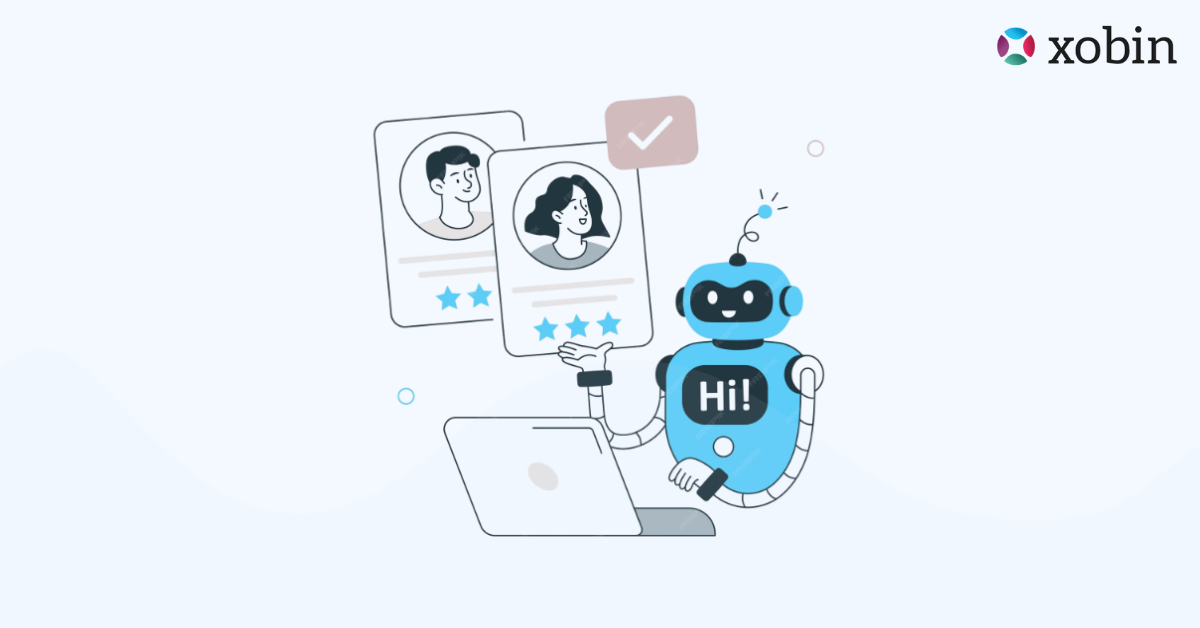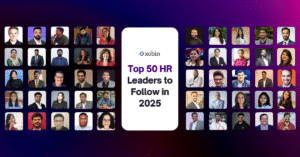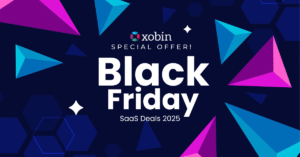In today’s talent-driven world, hiring decisions can no longer rely on gut instinct. The demand for smarter, data-driven, and unbiased hiring is reshaping how organizations evaluate candidates. Understanding the latest candidate assessment trends is now critical for HR leaders who aim to hire the best, faster, and more efficiently.
Table of Contents
From AI candidate assessments to gamified and adaptive assessments, technology has transformed hiring into a science of precision and prediction. Let’s explore the most significant candidate assessment trends in 2026 that every HR professional and business leader must know.
TL;DR – Key Takeaways!
- AI-Powered Screening: Advanced AI candidate screening automates shortlisting, reduces bias, and matches candidates based on data-backed insights.
- Data-Driven Recruitment: HRs are shifting from intuition to analytics, using data-driven recruitment trends to predict performance and retention.
- Gamified & Psychometric Testing: Engaging, science-based assessments now measure both skills and culture fit for smarter hiring decisions.
- Remote & Skills-First Hiring: Global hiring embraces remote skills testing and skills-first hiring through real-world simulations and video assessments.
- Bias-Free, Integrated, and Adaptive Tools: The future of hiring lies in bias-free assessments, seamless ATS integrations, and adaptive AI that personalizes every test.
The Evolution of Candidate Assessment
Candidate assessment has come a long way. Once confined to manual resume reviews and traditional interviews, hiring is now powered by automation, analytics, and artificial intelligence.
The shift began when organizations realized that skills, not resumes, determine job success. As hybrid work, automation, and talent shortages evolved, assessments became the bridge between potential and performance.
According to a 2025 HR Tech Outlook report, over 80% of enterprises now rely on online assessment platforms to make data-driven hiring decisions. This evolution marks a new era, one where algorithms and analytics enhance, not replace, human judgment.
Latest Candidate Assessment Trends
1. AI Screening for Faster, Fairer Hiring
Artificial intelligence is transforming the way organizations screen candidates. AI candidate screening tools can analyze thousands of resumes, identify top talent, and match skills to job requirements in seconds.
These tools go beyond keyword matching. They evaluate behavioral data, linguistic patterns, and even video responses to assess personality traits and communication skills.
The biggest advantage? Speed and fairness. AI minimizes human bias and standardizes decision-making. It ensures every candidate is evaluated objectively based on skills, not surnames.
Xobin’s AI-driven assessment engine, for instance, uses machine learning to score candidates on both technical and soft skills, helping recruiters shortlist accurately while saving up to 70% of manual screening time.
2. Data-Driven Recruitment Decisions
Intuition used to drive hiring; now, it’s all about data. The most successful HR teams are embracing data-driven recruitment trends to make smarter and more transparent hiring decisions.
Data analytics in assessments allows recruiters to track metrics such as candidate performance, test reliability, and predictive validity. These insights help forecast job success and reduce turnover.
For instance, predictive analytics can identify which candidates are more likely to stay longer or perform better based on historical patterns. This shift is leading organizations toward precision-based recruitment rather than subjective evaluation.
Simply put, data is the new hiring currency, and those who leverage it gain a competitive edge in talent acquisition.
3. Gamified Tests for Better Engagement
Hiring doesn’t have to feel like an exam. Enter gamified assessments, a trend redefining candidate engagement and experience.
By integrating game mechanics into evaluations, gamified tests measure cognitive abilities, problem-solving, and situational judgment in a fun, interactive way. Candidates are motivated to perform their best because the process feels less like testing and more like participation.
According to Deloitte’s 2025 Global Human Capital Trends, companies using gamified assessments report 30% higher completion rates compared to traditional tests.
For HR leaders, gamification also reflects the organization’s modern culture and employer brand, making assessments not only effective but also enjoyable.
4. Psychometric Tests for Culture Fit
Technical skills can be trained; personality fit cannot. That’s why psychometric testing has become one of the most influential candidate assessment trends in modern recruitment.
Psychometric assessments measure traits such as emotional intelligence, motivation, adaptability, and cultural alignment. These insights allow HR teams to identify candidates who not only perform well but also thrive within the company’s environment.
A Gallup study found that employees who align with company values are 50% more engaged and 35% less likely to leave. This makes culture-fit assessments vital for retention.
Xobin’s psychometric test library empowers HR leaders to evaluate personality and culture fit scientifically, reducing high turnover and improving team cohesion.
5. Remote and Video-Based Assessments
The rise of remote work has made video-based and remote assessments a global standard. Recruiters now evaluate candidates anywhere, anytime, making the process faster, scalable, and inclusive.
Modern video-based platforms use AI proctoring, facial recognition, and behavioral analytics to maintain integrity and ensure authenticity. For instance, webcam tracking and keystroke dynamics prevent cheating while maintaining fairness.
Moreover, video assessments help employers evaluate soft skills like communication, confidence, and problem-solving, critical traits that often go unnoticed in resumes.
A recent SHRM survey reveals that 65% of HR leaders prefer video assessments for early-stage evaluations because they combine convenience with rich behavioral insights.
6. Skills-First Hiring Takes Center Stage
Degrees are no longer the gold standard; skills are. The global shift toward skills-first hiring marks one of the most impactful current candidate assessment trends.
Organizations now focus on what candidates can do, not what’s on their résumé. Real-world simulations, coding challenges, and scenario-based tests are replacing traditional qualification filters.
LinkedIn’s 2025 Workplace Learning Report shows that skills-based hiring increases workforce diversity by 27%. This approach widens the talent pool and ensures inclusivity.
Xobin’s role-based simulations allow recruiters to test candidates on tasks identical to real job responsibilities, ensuring every hire is capable from day one.
7. Continuous Talent Evaluation
The assessment process doesn’t end at hiring anymore. Organizations are now adopting continuous assessment models to monitor employee growth and readiness for internal mobility.
Ongoing evaluations help HRs track performance trends, identify skill gaps, and design personalized learning programs. This creates a loop of development, retention, and succession planning.
By aligning assessment data with L&D systems, HR leaders ensure that top performers are nurtured continuously. This trend redefines assessments as a lifelong journey, not a one-time test.
8. Bias-Free and Inclusive Hiring Models
Diversity and inclusion are no longer optional; they’re expected. Bias-free assessment models are becoming standard as companies prioritize fairness and equality.
AI algorithms are now trained on diverse datasets to avoid gender, ethnicity, or background bias. Additionally, blind testing, where candidate identities are anonymized, is being adopted to ensure purely merit-based selection.
In fact, a Gartner report found that 67% of organizations now use DEI-focused assessment methods to drive fair hiring.
Leading recruitment platforms for bias free hiring use structured, data-backed scoring systems that minimize bias while improving accuracy and compliance.
9. Seamless ATS and HR Tech Integrations
Recruitment efficiency thrives on connected systems. One of the most practical hiring assessment trends is the integration of assessments with ATS (Applicant Tracking Systems) and HR analytics tools.
These integrations allow seamless candidate data flow, automated scoring, and instant shortlisting. As a result, recruiters spend less time switching between systems and more time engaging top talent.
For example, Xobin’s online assessments can integrate directly with popular ATS tools, ensuring results, analytics, and reports sync automatically. This kind of integration is essential for enterprises managing large-scale recruitment.
By merging assessment data with HR analytics, companies gain a unified view of candidate performance and hiring ROI.
10. Adaptive and Personalized Assessments
Personalization has entered the world of assessments. Computerized adaptive testing uses AI to adjust question difficulty in real time based on the candidate’s responses.
If a candidate performs well, the system increases complexity; if not, it adjusts accordingly, creating a fairer, more accurate measurement of capability.
This approach not only enhances precision but also keeps candidates engaged by reducing fatigue.
According to PwC’s HR Tech Forecast 2025, adaptive assessments improve completion rates by 45% and accuracy by 32%. They represent the next step in candidate evaluation, where personalization meets performance.
The Future: AI + Human Intelligence
While AI is revolutionizing candidate assessment, human intuition still holds power. The future of hiring lies in combining automation with empathy.
AI can process data at scale, but humans understand nuance, creativity, and emotional context. The best HR leaders of tomorrow will use both, leveraging technology to enhance decision-making while maintaining human connection.
This hybrid approach ensures that hiring remains both efficient and empathetic.
How Can HRs Stay Ahead?
To stay ahead of these evolving trends, HR leaders must rethink how they evaluate talent. Here’s how:
- Adopt AI-powered assessment platforms to automate screening and reduce bias.
- Invest in data-driven tools to make decisions backed by evidence, not assumptions.
- Integrate assessments with ATS systems for seamless workflows.
- Use psychometric and gamified tests to measure both skills and culture fit.
- Focus on continuous evaluation to nurture internal talent and boost retention.
The best candidate assessment platform, Xobin empowers HR teams with all these capabilities, combining AI, analytics, and automation to deliver faster, fairer, and more insightful hiring.
By embracing these latest candidate assessment trends, organizations can future-proof their recruitment strategies, attract top talent, and build high-performing teams ready for the next decade.
Lead the Future of Hiring with Xobin!
The hiring landscape is transforming faster than ever. Today, assessments go beyond filtering candidates, they uncover true potential. By adopting a scientific, data-driven, and inclusive hiring approach, organizations can build stronger, future-ready teams.
If you’re ready to stay ahead of 2026’s candidate assessment trends and embrace innovation in recruitment, it’s time to see Xobin in action.
Book a personalized demo with Xobin and discover how our AI-powered assessment suite helps you hire smarter, faster, and bias-free.
FAQs
1. What are the latest candidate assessment trends in 2026?
The latest candidate assessment trends include AI-driven screening, data analytics, gamified tests, psychometric evaluations, and adaptive assessments that improve accuracy and engagement.
2. How is AI reshaping candidate assessments?
AI enhances recruitment by automating screening, predicting performance, reducing bias, and delivering data-backed hiring decisions.
3. Why are data-driven assessments better than traditional ones?
Data-driven assessments offer measurable insights into candidate potential and retention probability, unlike subjective or intuition-based evaluations.
4. What is the role of gamified and psychometric tests in hiring?
Gamified and psychometric assessments improve engagement and help measure behavioral, emotional, and cultural alignment with organizational values.
5. How can HRs adopt these trends effectively?
By using modern candidate assessment software like Xobin, HRs can automate workflows, ensure fairness, and align hiring with strategic business goals.






